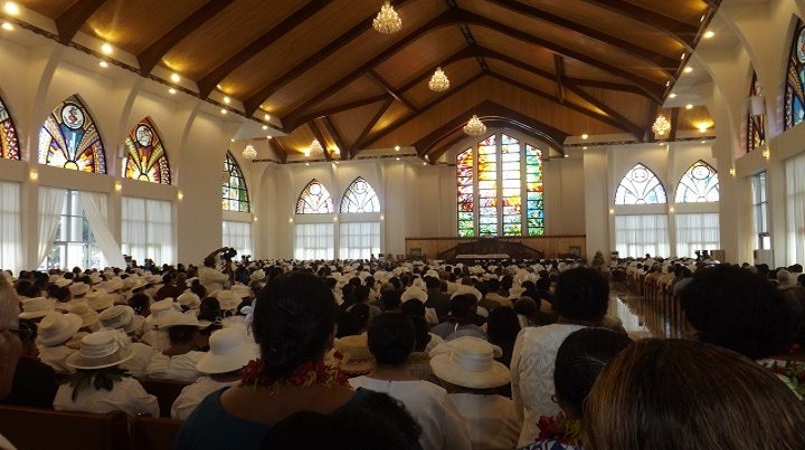
A study by New Zealand academics has called on churches in Samoa to help stop violence against women in the Pacific nation.
The report, titled Church Responses To Gender-Based Violence Against Women in Samoa, examines how Samoa's social, cultural and religious systems act to sustain the nation's high rates of violence against women.
The leader of the project, Mercy Ah-Siu Maliko, said in order for churches to achieve this, they must first include women in their ministry work.
Dr Maliko, who has Samoan heritage, said the church needs to revise its interpretation that legitimises the submission of women, that legitimises the customs and rules that oppress women.
She said the best place to start is re-examining the gender balance.
"Because the root of violence against women or family violence is gender inequality," she said.
Dr Maliko also said it is time for female scholars in the Pacific to re-read the Bible because it had been interpreted by men and did not include women.
"It is based on a system where men are superior than women," she said.
"Theologies in the Pacific are mostly the interpretations of male - the patriarchy interpretations.
"This is the time for the church to be open to allowing women to be students, to be candidates in the ministry. In terms of theological addition, in terms of the relations of women.
"Those are the issues that contribute to this problem and must be considered right now."
Dr Maliko said these are some of the transformative responses the team is trying to merge with their studies.
"We have also translated it into the Samoan language, incorporating examples, more contextual examples of real-life case studies of what happened in Samoa."
Dr Maliko said 99 percent of Samoans attend church and she urged the island's Christians to become agents for healing.
"Within Samoa, the church is located within the centre of Samoan society," she said. "It is the conscience of Samoan society and it's time that the church is reminded of their prophetic role to help in preventing this problem."
Dr Maliko said violence is a sin and a crime and called on the teachings from the pulpit to change.
The report also examined how Samoa's social, cultural and religious systems acted to sustain the nation's high rates of violence against women.
Dr Maliko said when women marry and leave their families, they become under the control of their husbands and inlaws.
"And this is where we see a lot of problems. But now we have programmes to try and promote the importance of wives," she said.
"It all comes down to the way we choose to interpret the roles of wives. How it's carried on from one generation to another."
Dr Maliko said most villages in Samoa allow women to obtain the chiefly matai title.
"So you ask the question why are these villages allowing women to become chiefs - yet their voices are not being heard?
"These voices can bring the balance and bring that holistic nature of decision-making - not only for the family but for Samoa as a nation."
